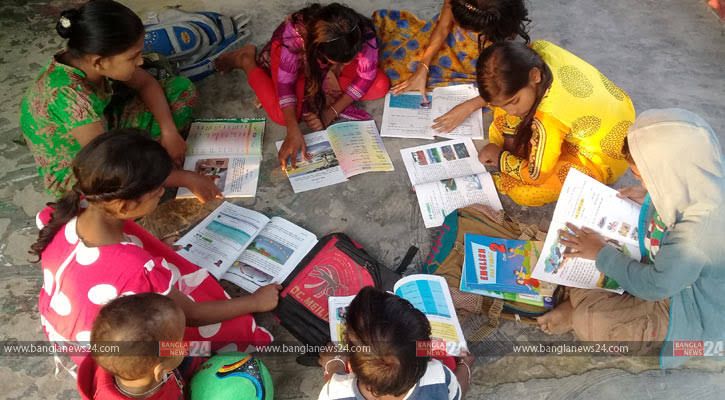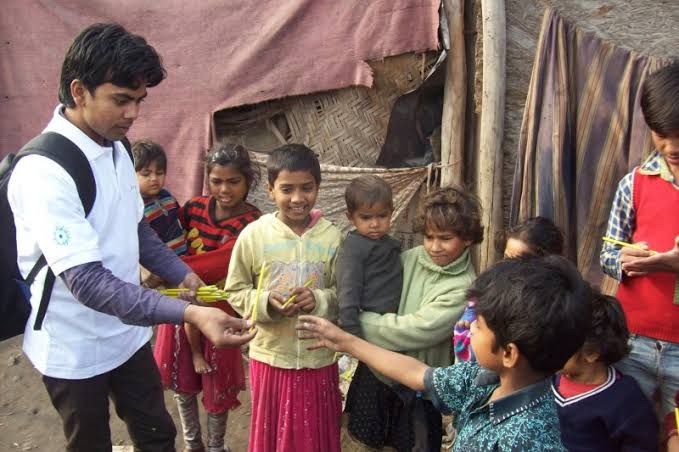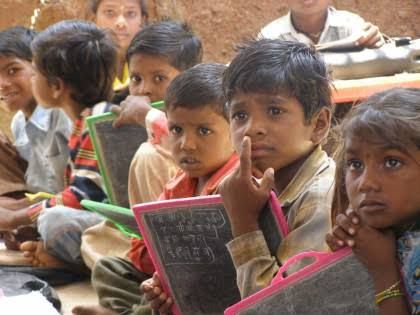Bismillahir Rahmanir Raheem.
Assalamu Alaikum Wa Rahmatullahi Wa Barakatuhu.
Dear fellow friends, I hope you are all well, I am also well and healthy by the grace of Allah through your prayers. Welcome and congratulations to all of you in today's post.
Raising Boys and Girls in Islam: A Comprehensive Guide
In Islam, the upbringing of children is considered a significant responsibility bestowed upon parents. It is seen as a form of worship and a means to earn Allah's pleasure. The guidance provided by Islam encompasses every aspect of a child's life, aiming to develop them into well-rounded, righteous human beings. This essay will explore the steps involved in raising boys and girls, guiding them, and shaping their character from an Islamic perspective.

source
Understanding the Equal Value of Boys and Girls
First and foremost, Islam emphasizes the equal value and dignity of boys and girls. The Quran and Hadith consistently highlight that all human beings are equal in the eyes of Allah, regardless of gender. The Prophet Muhammad (peace be upon him) said, “Whoever has two daughters and treats them kindly, they will be a protection for him against the Fire” (Al-Tirmidhi). This underscores the importance of valuing and nurturing both sons and daughters.

source
Teaching Tawheed (Monotheism)
A fundamental aspect of Islamic upbringing is teaching tawheed, the oneness of Allah. Children should be taught to understand and appreciate the concept of monotheism from an early age. This includes teaching them the basics of faith, such as the five pillars of Islam, and instilling a sense of love and fear of Allah. Parents can use stories from the Quran and Hadith to make these concepts relatable and engaging for children.

source
Moral and Ethical Education
Islamic upbringing places a strong emphasis on moral and ethical education. Children should be taught the principles of honesty, integrity, kindness, and compassion. The Prophet Muhammad (peace be upon him) said, “The best of you are those who have the best manners and character” (Sahih Bukhari). Parents should model these behaviors themselves and provide positive reinforcement when their children exhibit them.

source
Encouraging the Pursuit of Knowledge
The pursuit of knowledge is highly encouraged in Islam. The Prophet Muhammad (peace be upon him) said, “Seeking knowledge is obligatory upon every Muslim” (Ibn Majah). Parents should encourage both their sons and daughters to excel academically and seek knowledge in both religious and worldly matters. This includes providing them with access to quality education and supporting their intellectual curiosity.
Providing a Loving and Supportive Environment
Children thrive in a loving and supportive environment. Islam teaches parents to be kind, gentle, and affectionate with their children. The Prophet Muhammad (peace be upon him) demonstrated this through his interactions with his own children and grandchildren. He was known for playing with them, showing them affection, and listening to their concerns. This nurturing approach helps build a strong parent-child bond and fosters a sense of security and self-worth in children.

source
Teaching Responsibility and Independence
As children grow, it is essential to teach them responsibility and independence. This can be done by assigning age-appropriate chores and tasks, encouraging them to take responsibility for their actions, and allowing them to make decisions within a guided framework. Islam encourages self-reliance and accountability, as these qualities are crucial for personal development and success.
Promoting Physical and Mental Well-being
Islamic teachings emphasize the importance of physical and mental well-being. Parents should ensure that their children have a balanced diet, regular physical activity, and adequate rest. Additionally, they should be attentive to their children's mental health, providing support and guidance through life's challenges. The Prophet Muhammad (peace be upon him) said, “Your body has a right over you” (Sahih Bukhari), highlighting the significance of maintaining overall health.

source
Fostering Social Skills and Community Involvement
Children should be taught the importance of good manners, respect for others, and effective communication skills. Encouraging them to participate in community activities and volunteer work helps them develop a sense of social responsibility and empathy. Islam promotes the concept of ummah (community), and being actively involved in the community is a way to strengthen social bonds and contribute positively to society.
Addressing Gender-Specific Needs
While many aspects of upbringing are universal, it is also important to address the unique needs and challenges faced by boys and girls. For boys, this might include teaching them about the responsibilities of being a future provider and protector, as well as emphasizing the importance of emotional intelligence and respectful behavior towards women. For girls, it includes instilling confidence, self-respect, and the understanding that they have equal rights and opportunities in Islam. It is essential to combat cultural biases and stereotypes that may limit their potential.
Balancing Discipline with Compassion
Discipline is a necessary part of upbringing, but it should be balanced with compassion. Islam encourages parents to use gentle methods of correction and avoid harsh punishment. The Prophet Muhammad (peace be upon him) said, “There is nothing heavier in the scales than good character” (Abu Dawood). Parents should set clear expectations, provide consistent guidance, and correct mistakes with understanding and empathy.
Instilling a Sense of Purpose and Spirituality
Lastly, instilling a sense of purpose and spirituality is crucial in Islamic upbringing. Children should be taught to seek Allah's pleasure in all their actions and to view their lives as a means to achieve greater good. This includes regular prayer, reading the Quran, and engaging in acts of worship and charity. By fostering a strong spiritual foundation, parents can help their children navigate life's challenges with resilience and faith.
source
Raising boys and girls in Islam involves a comprehensive approach that integrates faith, ethics, education, and personal development. By providing a loving and supportive environment, teaching core Islamic values, and addressing the unique needs of each child, parents can guide them towards becoming well-rounded, responsible, and righteous individuals. The ultimate goal is to raise children who are not only successful in this world but also in the hereafter, earning the pleasure of Allah and contributing positively to their communities.
